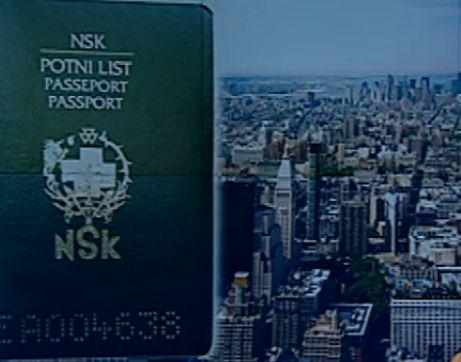
In June 1991, Slovenia became an independent country. It got a new flag and a new coat-of-arms – in the coming months, it issued its first passports, ushered in a new constitution, and opened the first embassies abroad.
At roughly the same time, another state emerged in Slovenia. It also had its own citizens, passports, embassies, and even a constitution of sorts. But this state was the artistic project of Neue Slowenische Kunst, a daring collective of artists known for thumbing their noses at authority and challenging the status quo.
The collective decided to create a real state – just one without borders or territory. In the process, they would make an artistic statement about the meaning of citizenship and nationhood in our globalized 21st century world.
Since then, they have staged artistic performances and congresses – some under the guise of “embassies” -- in cities as varied as Moscow, Berlin, New York, and Sarajevo. During their travels, they also successfully recruited hundreds new “citizens” from around the world. (There are now more than 10,000 of them.)
As its founders emphasize, anyone can become a citizen of the NSK State. All that is required is for the prospective citizen to accept the state’s founding principles – its “constitution.” Everything else – the applicant’s original nationality, religion, sexual orientation, etc. – is irrelevant, true to the spirit of a truly global, post-national political entity.
It turned out that the NSK State is more real that its founders once thought. Some NSK citizens have used their passports to successfully cross international borders. According to the group, several of NSK’s Bosnian citizens even used the NSK passports to flee abroad during the Bosnian conflict after their real Bosnian passports were refused at the border.
The state is so real to many of its citizens that Neue Slowenische Kunst now publishes a warning on its website explaining that the NSK State is not internationally recognized and that the artists’ collective cannot be held responsible for anyone who gets in trouble for traveling on an NSK passport.
Still, the very originality of the NSK State has attained something that even real countries often lack – international awareness and media attention. In the process, Neue Slowenische Kunst has brought much-needed publicity to Slovenia, a real country that is all too often overlooked by the outside world.

































































